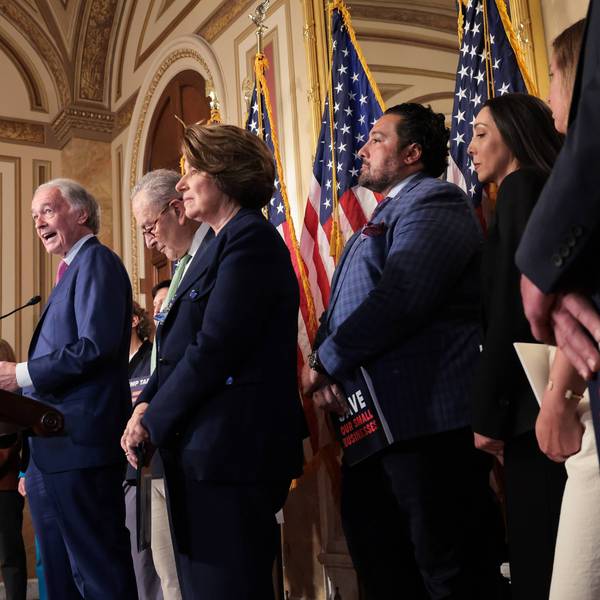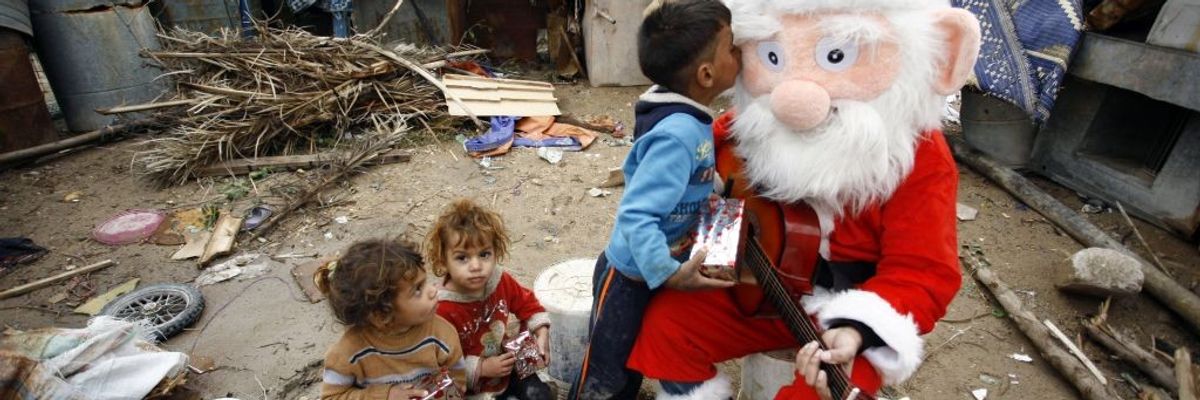It’s true I have a favorite Christmas song, but as it turns out, it’s not one that many people know—at least I assume most people don’t know it.
Funny enough, the title is simply “Christmas Song,” and it was performed—at least the version I know—by songwriter Greg Brown during a live show back in 2001.
Though an atheist, my fondness for Christmas—perhaps like it is for many—is wrapped in the nostalgia of the holiday of my upbringing as well as the ongoing joys I find during this “season of giving.” Like religious celebrations across many faiths, Christmas has the ability to open the human heart and reminds us (if we let it) of that spirit that enriches us and challenges us to understand what it means to share, not material gifts, but time and warmth with one another.
In Brown’s song—which I encourage you to listen to here or below—the story of Jesus is subtly inverted.
Rather than a story of miraculous birth—”It was the night before Christmas,” the song begins, “but nobody was really noticing that”—it is a story about the routine of birth (“something women do” and that “men kinda, sorta, a little bit… help”) in which the only miracle is the gift of life that we’ve all been granted.
Just getting born is such an amazing thing
You'd think we'd all just be nice forever after—
Just to get to be a part of it.
You'd think that anybody that ever held a little baby in their arms
Would be so careful not to ever do any damage
To another human being—or to the creation
Of which we are so obviously a part.
The song presents a story of Jesus that escapes Christianity, which is perhaps why I find it so lovely and piercing, and opens the door to thinking about the hidden promise of a holiday that too often asks us “what we want” as opposed to reflecting on the joys of what we’ve been given.
Sometimes when I get distraught
About our world and what we're doing to it
I remind myself that little children like that are being born every day.
The story in the song is not about a boy who grew up to “found any big religions, with shiny churches,” but rather a story “about a world so much better than this one.” In this story, the unnamed boy “was just a child full of love, who went around and talked about love.”
And so it follows that the lesson of such a child is not that he was exemplary (though perhaps he was), but that we too often fail to recognize the potent and profound goodness of so many people among us, past and present—not children of God, but examples of humility and decency.
Sometimes when I get distraught
About our world and what we're doing to it
I remind myself that little children like that are being born every day.
They may not make a lot of big news
But in their life, they’re kind;
They take care of people;
They don’t blow things all out of proportion.
They spread the news that this life,
So mysterious and hard, is a wonderful enterprise
That should be cherished.
And Brown, led all along by the slow strum of guitar, speaks sorrowfully but clearly as he tells his listener:
So Christmas, if it’s anything at all,
It’s every day. It’s every night.
And even when things look dark, way down…
In the human heart,
That we all share...
There’s a light.
And, only to the song’s credit, it makes me think that’s true. I don’t call it religion, but that idea has shaped my understanding of what the promise of human goodness really is. We know it exists, not because we read about it or were told to believe in it—but because we’ve seen it. We’ve witnessed it.
So Christmas, if it’s anything at all, it’s every day. It’s every night.
Even amidst all the horror and violence and injustice, we know in our life, the good people—young and old and those neither young nor old—and they don’t ask us to believe, but show us the way.
When I listen to this song—as I often will at this time of year—it does something solemn to my heart, the hearts of my family, and those we share it with.
Since I first heard it, the song has always been to me a magnificent expression, though that was not its intent, of what Common Dreams seeks to represent—a world full of people who embody that spirit of loving one another and defending the common good while challenging “the political leadership of the day,” as the song puts it.
We don’t often use that kind of language, but that’s what this project we call Common Dreams is about: love. The news we report and the opinions and analysis we share are all grounded in a deep love for people, community, life of all kinds, and the planet that sustains us all.
I know very well how dark it feels right now for so many. We are right to be frightened and angry and frustrated. And at the same time, we must remember that the light “we all share, in the human heart” is the beginning of our path forward. We are going to have to fight like hell, but that fight will be built on love and solidarity or nothing at all.
If you want to support Common Dreams during this season of giving and reflection, please consider making a contribution to our crucial End-of-Year campaign. Without doubt, our work will be better and stronger with your help. No gift is too small and every gift—no matter the size—makes the biggest difference.
With endless gratitude for all you do in the world, dear reader, and the example you set for the rest of us.




